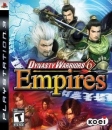@Greenmedic&Pipedream: That Pachters conspiracy theory is just BS. We already know that Pachter isn't living in this reality by his "observations". I'll make here a few points to disprove the "theory":
1. There were no supply constrains in Europe, so it doesn't make sense to ship excessive amount of consoles to Europe, that they can't sell, when they could make money with the consoles in NA. And even less, when the delay causes Nintendo to sell less games.
2. Despite not having supply constrains, Wii did have shortages in the UK a couple of times. Which should be enough as an evidence, that there's no secret Nintendo warehouse with millions of Wiis waiting for someone to pick them up.
3. Why Nintendo didn't create supply constrains to Europe to be able to supply more to NA? Is because of the competition in the market. Supply constrains make you lose sales and the competition is much harder in Europe. In order to keep competing and gaining foothold, Nintendo can't afford supply constrains.
4. According to Pachters conspiracy theory, Nintendo should be shipping "the additional amount of Wiis" to Japan.
@Capulous: Actually, you're off with your control comment, Wiis main selling point is the games. The only reason Balance Board sells, is Wii Fit.
Ei Kiinasti.
Eikä Japanisti.
Vaan pannaan jalalla koreasti.
Nintendo games sell only on Nintendo system.



































































 WHO IS JESUS REALLY?
WHO IS JESUS REALLY?